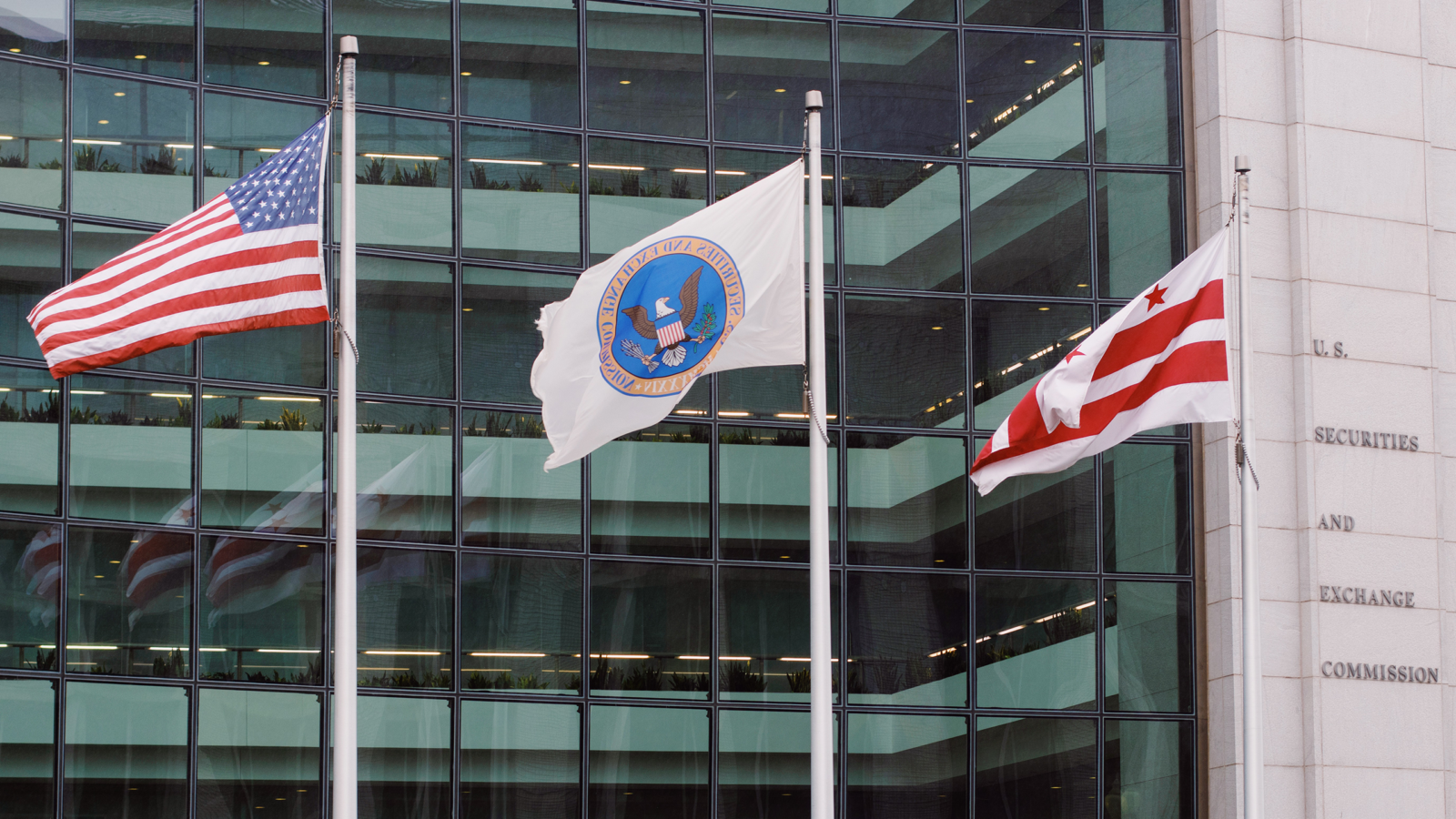Good morning, and happy Monday.
Who let the Doge out?
There are now several companies begging to get ETFs based on the Doge memecoin. 21Shares is the latest potential entrant hounding the Securities and Exchange Commission for approval, filing a registration statement for a product last week. The pack also includes Grayscale and Bitwise. The 21Shares ETF would track the performance of Dogecoin based on the CF Dogecoin-Dollar Settlement Price benchmark. The set of ETFs would further test the market’s hunger for yet another crypto fund in a space that has been dominated by bitcoin.
Ether-based ETFs have not attracted anywhere near as much attention or assets, and other ETFs tracking Solana and XRP are very recent entrants to the market. Nevertheless, Doge has gotten a lot of press lately for reasons no one could see coming, and that could drive more interest. Who knew an image of a pensive Shiba Inu would lead us here?
SEC Inches Closer to Dual-Share-Class Approval

The more classes, the merrier.
The Securities and Exchange Commission appears to be on the cusp of approving dual share classes, and it’s advising dozens of fund companies to copy Dimensional Fund Advisors’ approach in their applications. Mutual funds being able to add an ETF share class, and vice versa, could prompt numerous asset managers to add fund shares. And for issuers, adding a mutual fund share class could open the door to 401(k) plans, among other potential benefits. It’s simply hard to overstate how consequential the changes could be.
“It is a big moment,” said Aisha Hunt, principal at law firm Kelley Hunt, whose client F/m Investments has the second-longest pending application for share class exemptive relief, behind Dimensional. Soon, “we’re not going to be talking about ‘ETFs’ or ‘mutual funds.’ We’re going to be talking about hybrid funds.”
I’m 6(c) and I Know It
Dimensional announced earlier this month that it had filed an amended application for exemptive relief under Section 6(c) of the Investment Company Act of 1940 to offer ETF share classes “following productive conversations with the SEC staff.”
Since then, the Securities and Exchange Commission has contacted other fund companies waiting for approval, telling them to use Dimensional’s application as a model, Hunt said. The changes to the most recently filed application appear to reflect a culmination of dialog between fund companies and the SEC, not just Dimensional, she said. F/m filed its application in August 2023.
Currently there is only one company with ETF share classes of mutual funds: Vanguard, which until 2023 held an exclusive patent. And that firm has only been allowed by the SEC to have such share classes for index funds. That all will likely change soon, and that’s no small detail, given the explosive growth of active ETFs, which now represent about $1 trillion in assets. Survey data last year from Cerulli Associates show:
- 68% of ETF issuers are at least considering dual share classes.
- At least half of asset managers expect the SEC to approve it, and just 15% said it was unlikely.
Sharing is Caring: Most of the applicants use a governance framework in their applications that is essentially fiduciary oversight, meaning that fund boards and advisors choose appropriate funds that would add a share class, Hunt said. For example, factors such as the cash drag for a mutual fund’s reserves or settlement dates for international equity holdings could make it complicated or inappropriate to add a share class, she said. A next step in the expansion of share classes is ensuring fund service providers are prepared, given the additional operations infrastructure they may need, she said.
“The exchanges are starting to be very proactive in working with the [SEC’s] Division of Trading and Markets,” she said, adding that the SEC is likely to approve dual share classes sometime this quarter. “We’re very optimistic about the potential of obtaining relief.”
ETF Closures Could Tick Up in Volatile Markets
You don’t have to go home, but you can’t stay here.
With a possible global trade war looming and recession fears swirling, the ETF industry may be facing an uptick in fund closures in the coming months. While giant funds from household names like BlackRock, Vanguard, and State Street may benefit from uncertain markets, recently launched products are at a higher risk of folding. If equity markets remain in flux, ETF closures could approach the 656 that took place globally during the first year of Covid-19 in 2020, experts said.
“A lot of new ETFs won’t even have a chance to grow either through market appreciation or new flows because everyone is too scared to invest in them over fear of closure,” said Todd Sohn, ETF strategist at Strategas Asset Management, adding that investors flock to trusted brands during bear markets. “It becomes a negative feedback loop.”
Exit Sign
The global ETF market experienced nearly 2,000 product launches, a new record, and 622 closures last year, per ETFGI. The US accounted for the largest shares of both at 746 launches and 196 closures. But that was in 2024, before the sweeping tariffs the current administration imposed on most imports, which were paused last week, and may or may not increase in the next three months.
Asset managers may be forced to tighten their belts and drop some of their unprofitable ETFs, said Bryan Armour, director of passive strategies research at Morningstar. “By my count, there are over 1,100 US ETFs with under $25 million in net assets that are likely operating at a loss,” he told ETF Upside. “That means a huge number of ETFs are on the chopping block.”
Number Theory. The market isn’t everything, though. For example, 2023 was a great year for stocks, with all three major indexes rallying. And yet, it was also one of the worst years for ETF closures at 865 globally, according to ETFGI. The reason is that the big issuers, with the most launches, often have the most closures because they prune riskier, unprofitable funds. According to CFRA Research data:
- Five ETF issuers — BlackRock, Direxion, Invesco, Barclays, and WisdomTree — have accounted for 25% of all launches in the US ETF industry since its inception.
- High-risk leveraged and inverse ETFs are the most likely to shutter, and have accounted for 16% of all closures in the history of the ETF industry in the US.
“While market downturns could contribute to more closures since it makes asset gathering more challenging, it is not the only factor that drives closures,” Aniket Ullal, head of ETF Research & Analytics at CFRA Research, told ETF Upside.
Betting on Sin Stock ETFs Is Paying Off Amid Volatility

Mob boss Tony Soprano once asked, “What two businesses have traditionally been recession-proof since time immemorial?” The answer: “Certain aspects of show business, and our thing.”
Cosa Nostra is certainly a far cry from the ETF industry and the wider asset-management business. But a takeaway is that some industries are more insulated than others from market dives. Take, for example, alcohol, tobacco, weapons, gambling, and a mutual fund that intentionally focuses its holdings on those areas: The Vice Fund (VICEX). Year to date, it has a return of just over 4%, which may not sound impressive until you consider the Morningstar Global Total Market Exposure Index being down 7% and the S&P 500 falling by 9%. Bada Bing.
“The main idea for the Vice Fund is that there is a subset of equities that are sort of morally questionable to certain groups,” said Paul Strehle, president of USA Mutuals and the portfolio manager of the fund. “And due to that, these typically trade at a discount on a variety of metrics.”
Extra Upside
- The Great Wall: China considers opening $520 billion ETF market to Western market makers.
- Mind on My Money: ETF flows in a volatile market.
- Muni Tunes: Fidelity adds its first muni-bond ETFs.
ETF Upside is written by Emile Hallez. You can find him on LinkedIn.
ETF Upside is a publication of The Daily Upside. For any questions or comments, feel free to contact us at etf@thedailyupside.com.
